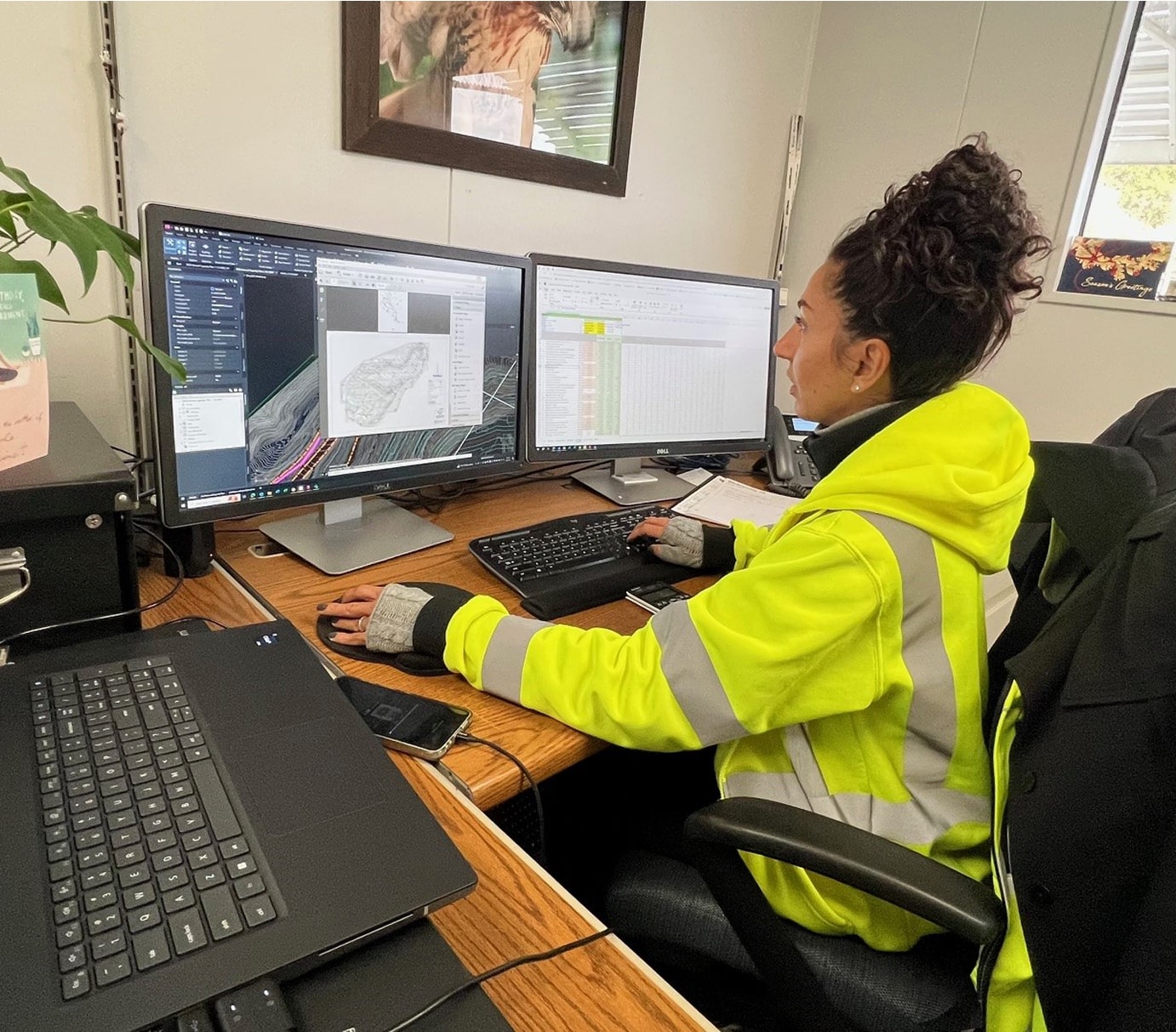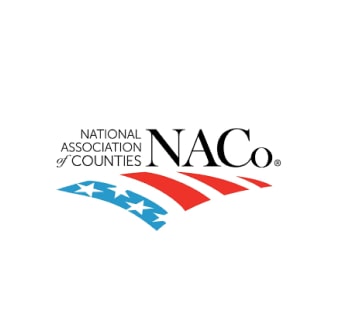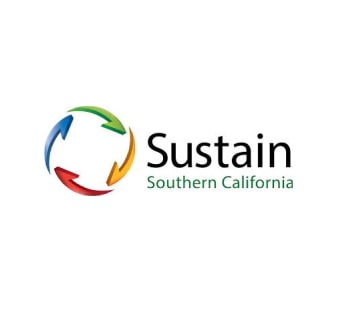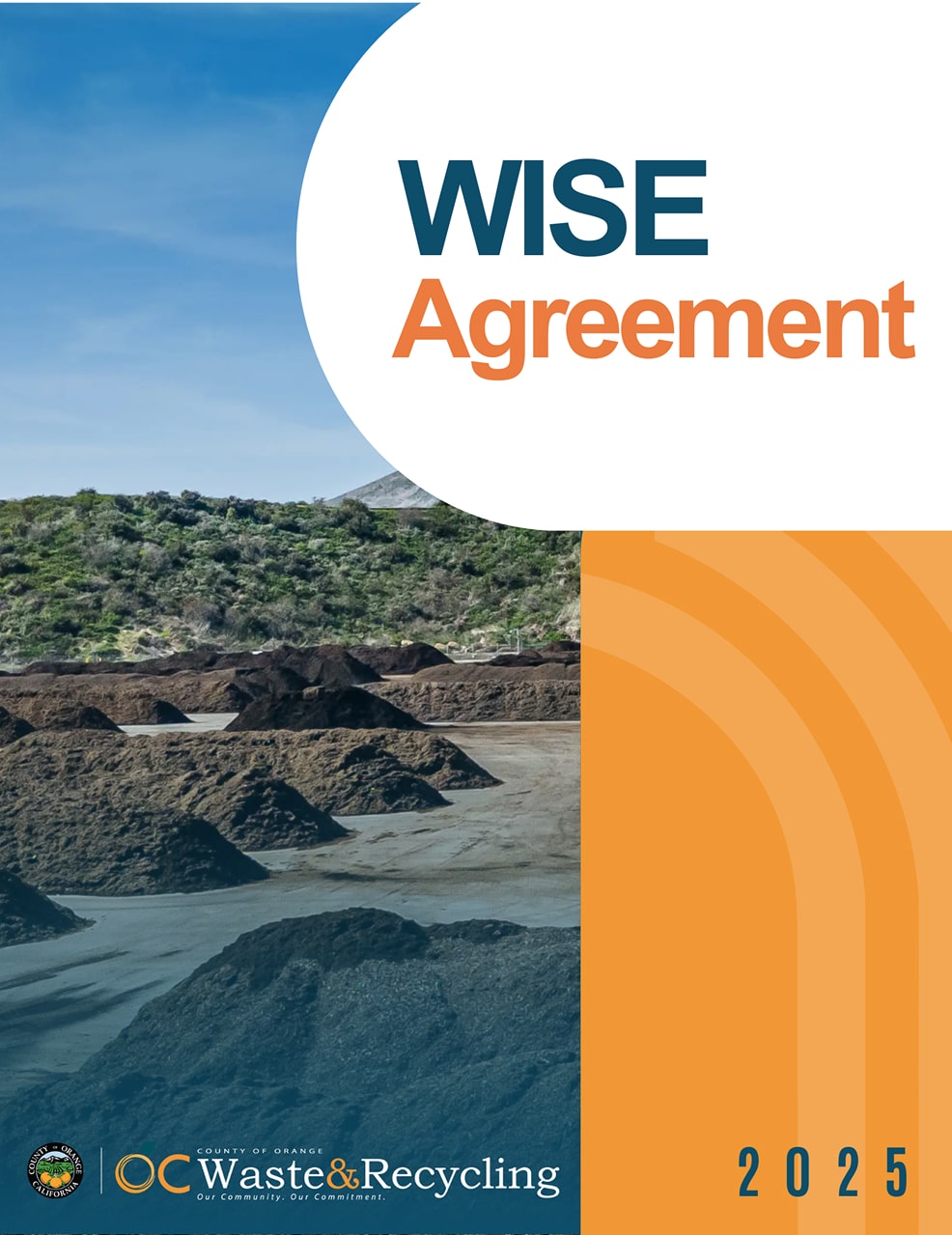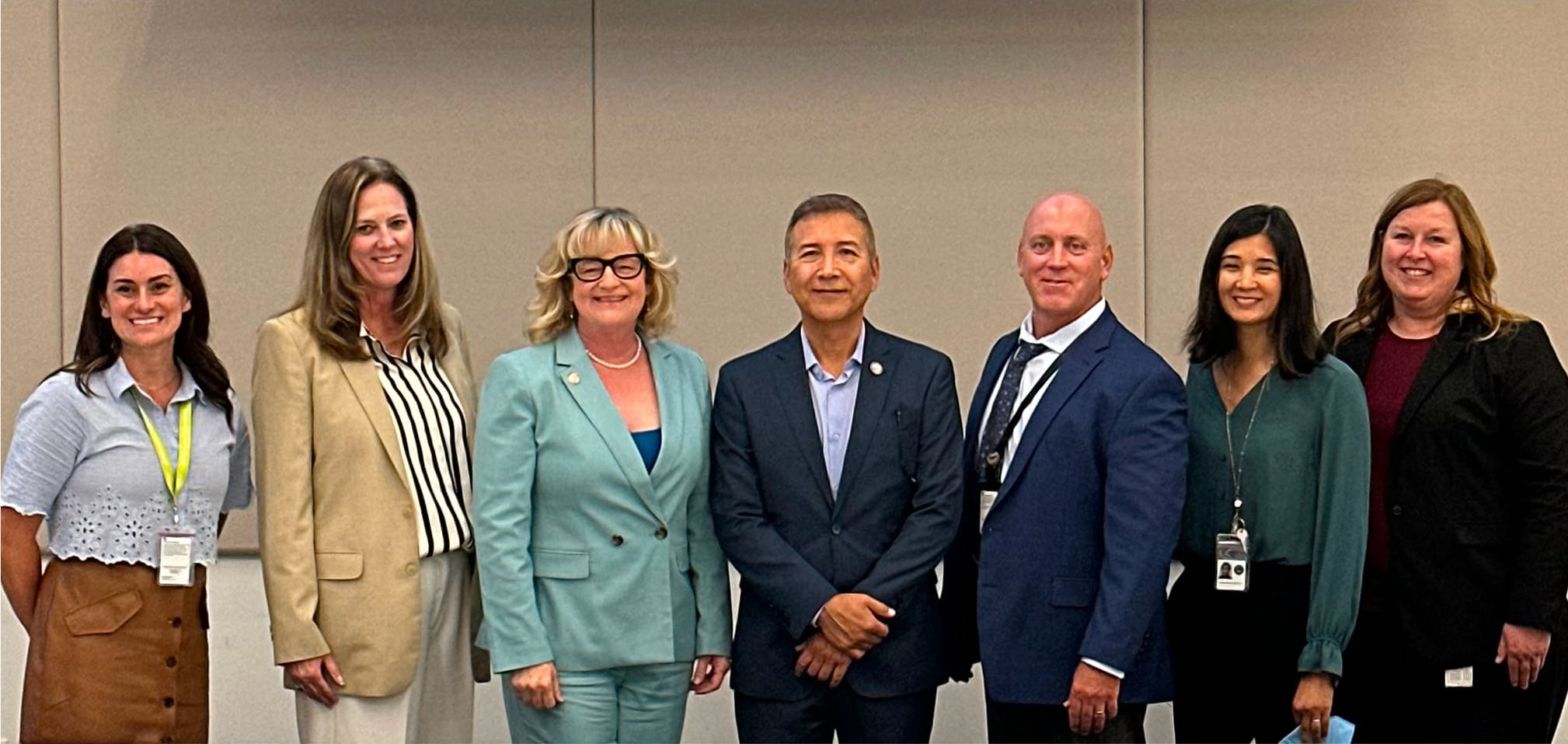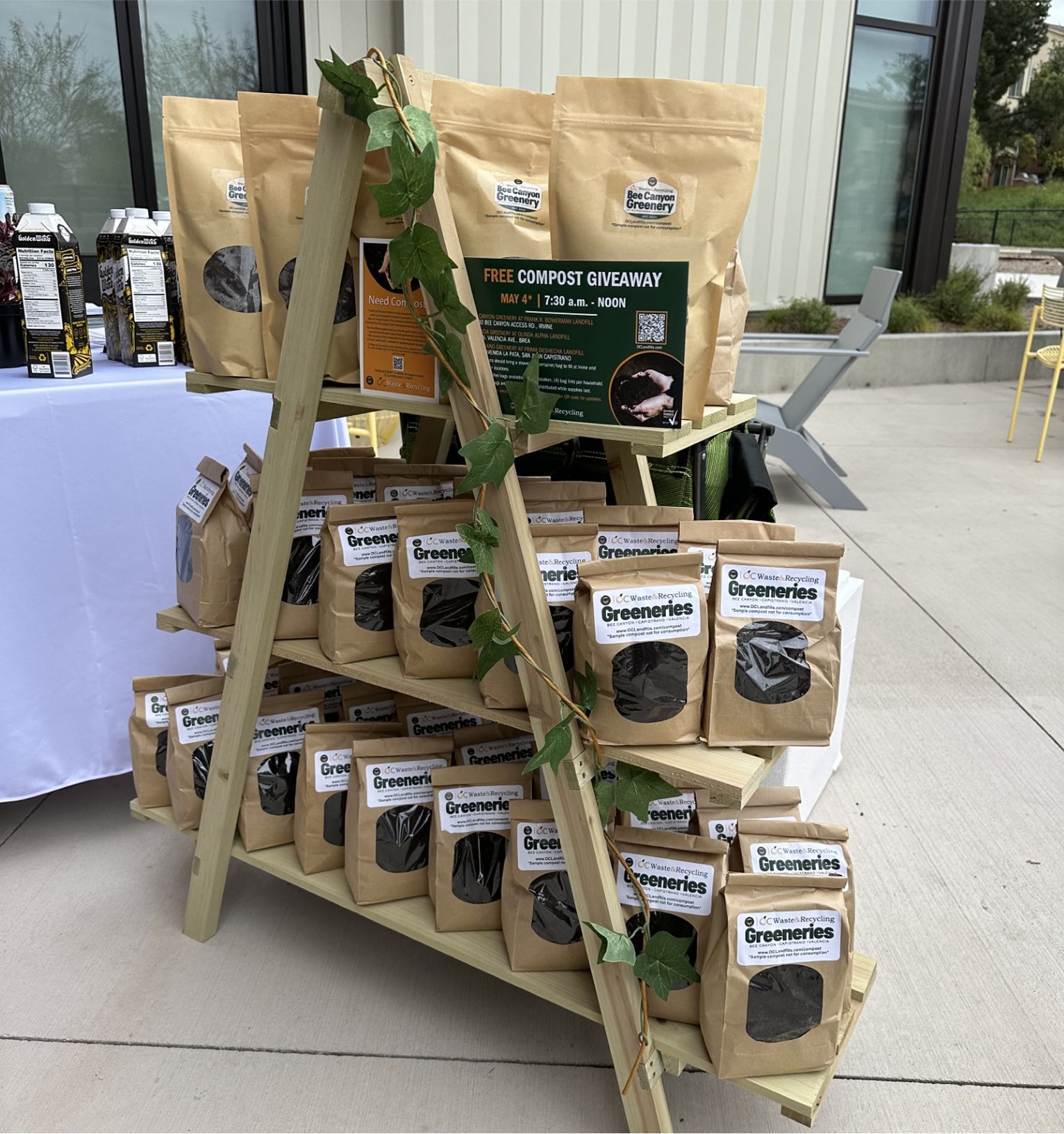DrivingInnovation
Smart Landfilling
Building on legislative mandates like Assembly Bill (AB) 939 and Senate Bill (SB) 1383, OCWR is expanding waste infrastructure with regional organic processing facilities and advanced composting technologies, including Covered Aerated Static Piles (CASP).
As part of Phase 2, the Smart Landfill Program (SLP) integrates Best Available Technology (BAT) to optimize landfill operations with real-time emissions monitoring, increased landfill gas-to-energy conversion, and enhanced organics throughput. This strategic initiative supports Orange County’s waste management goals, reduces greenhouse gas emissions by 10-15%, and lays the foundation for future advancements, such as anaerobic digestion and renewable energy production. With a clear roadmap, OCWR is committed to implementing a sustainable and efficient waste system that serves generations to come.
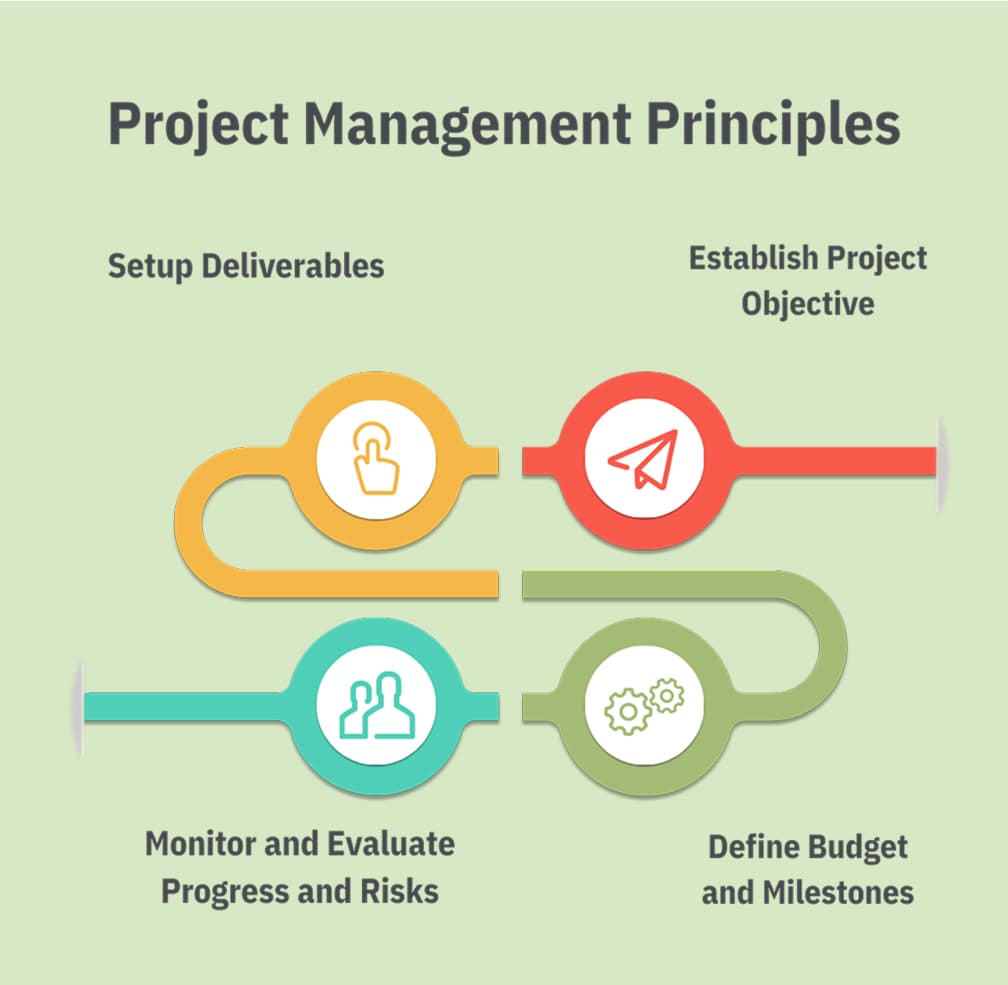
Project Management Office (PMO)
Project Management Institute (PMI) standards, focuses on aligning PMO functions and processes with organizational goals. It leverages PMI’s guidance for PMO development and benefits realization, ensuring value delivery through improved project performance, strategic alignment and the successful completion of projects on time and within budget.
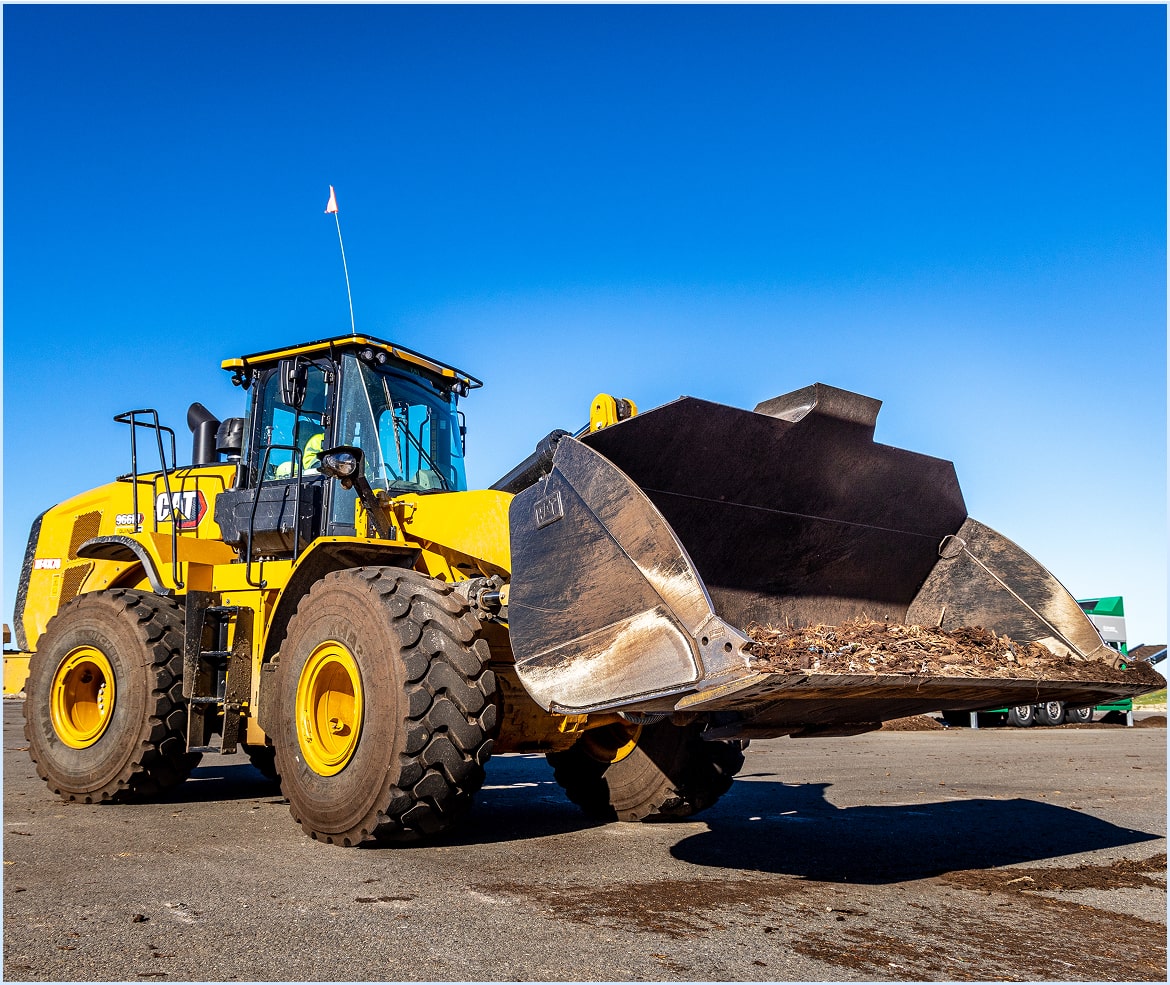
Reliability Maintenance Planning (RMP)
The RMP aims to establish and deploy effective maintenance strategies and programs to protect OCWR's assets associated with solid waste management systems through reducing unplanned downtimes, optimizing operational efficiencies, and improving cost effectiveness.
Organics to Renewable Natural Gas and Energy Phase 2
OC Waste & Recycling continues it's steadfast efforts towards Phase 2 of regional infrastructure enhancements.
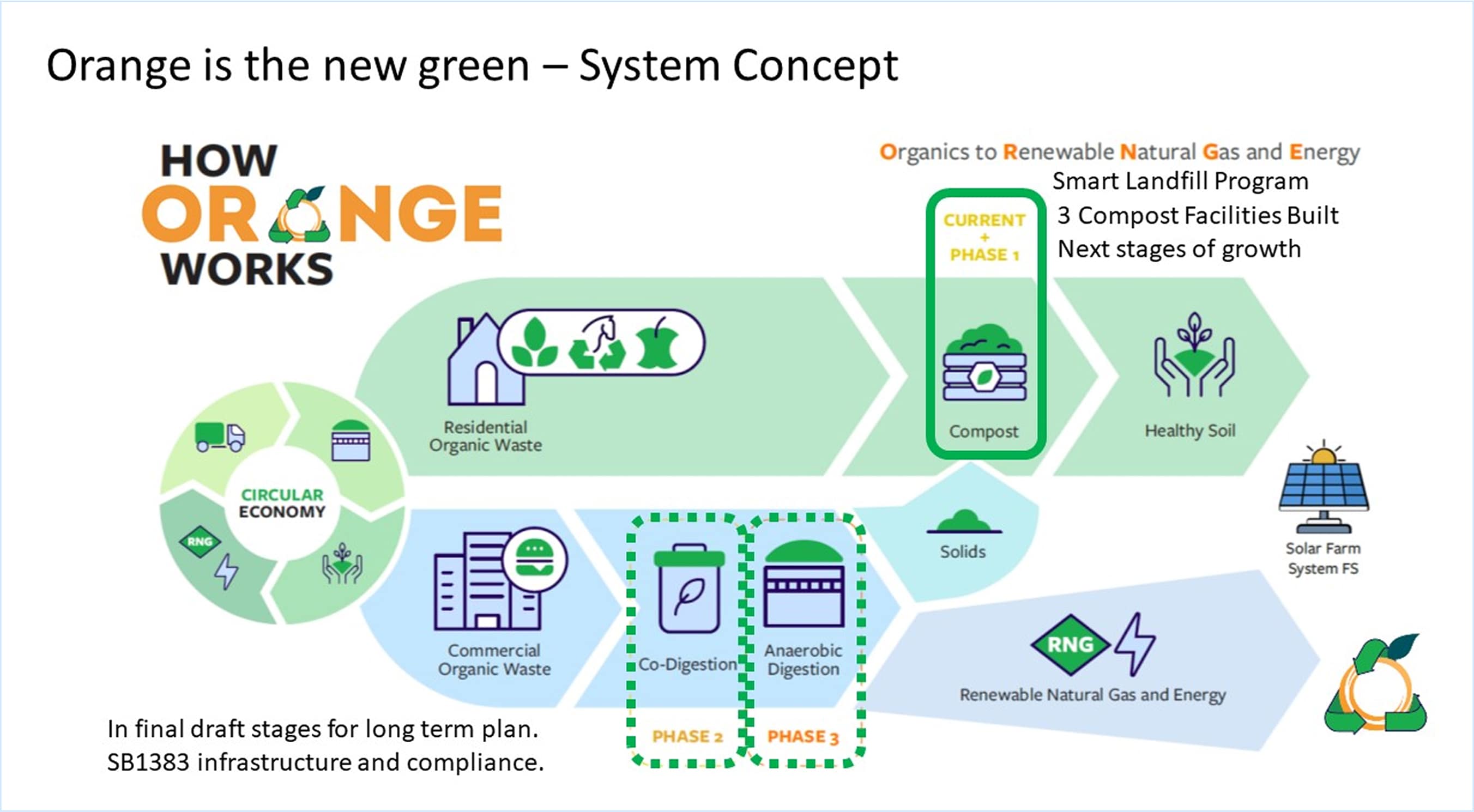
2024Awards
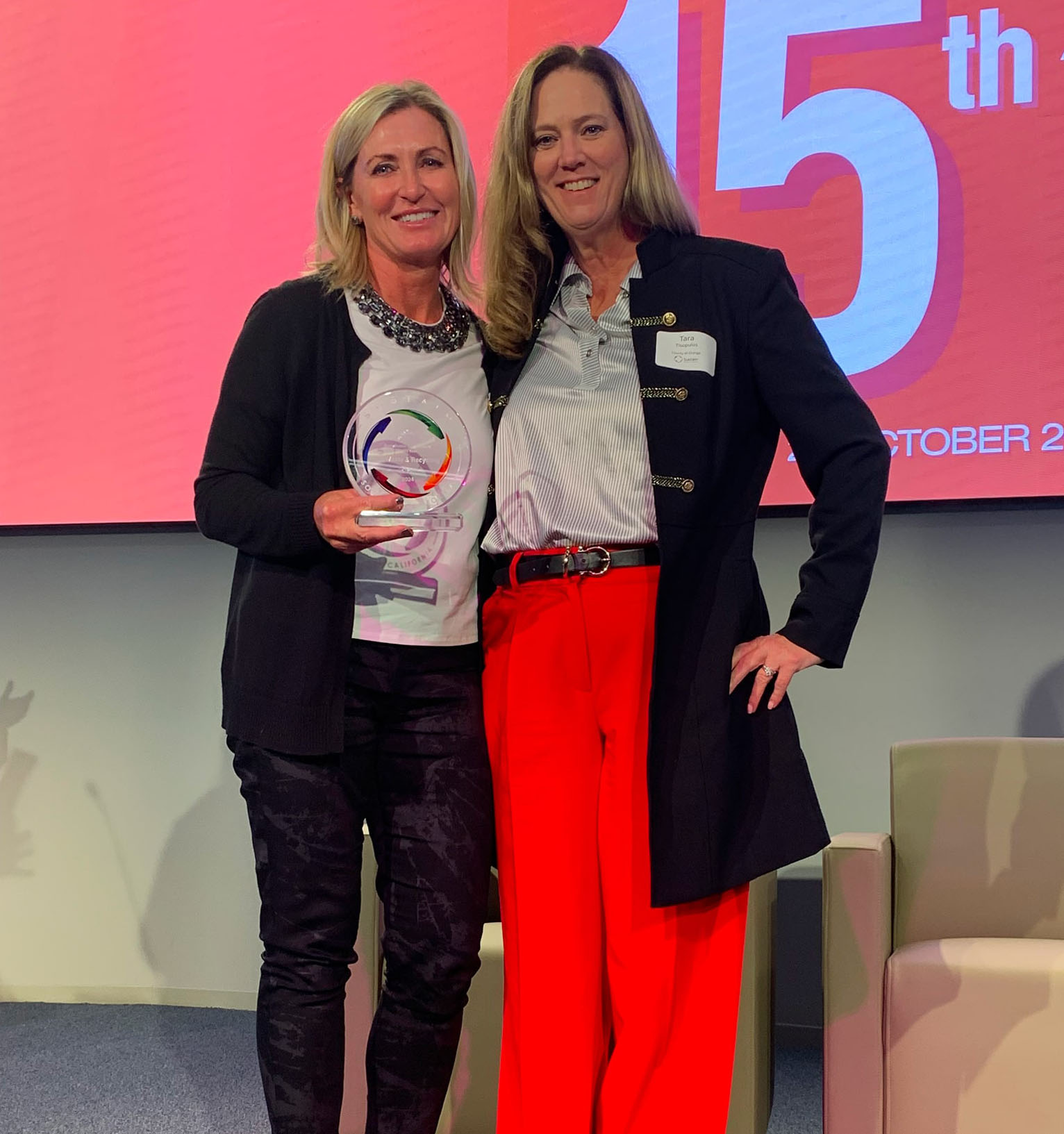
ContractNegotiations
WISE Agreement: Preparing for a Sustainable Future
For decades, Orange County jurisdictions have benefited from Waste Disposal Agreements (WDAs) that ensure essential public services such as reasonable rates, disposal guarantees, and importation revenue sharing. However, the current WDAs are set to expire on June 30, 2025, and OCWR is transitioning to a new Waste Infrastructure System Enterprise (WISE) Agreement.
The WISE Agreements will consolidate services under one inclusive disposal rate, continue importation revenue sharing, and maintain environmental and indemnification protections, ensuring a seamless transition for jurisdictions while supporting the needs of Orange County residents and businesses.
Sustainability& Opportunity
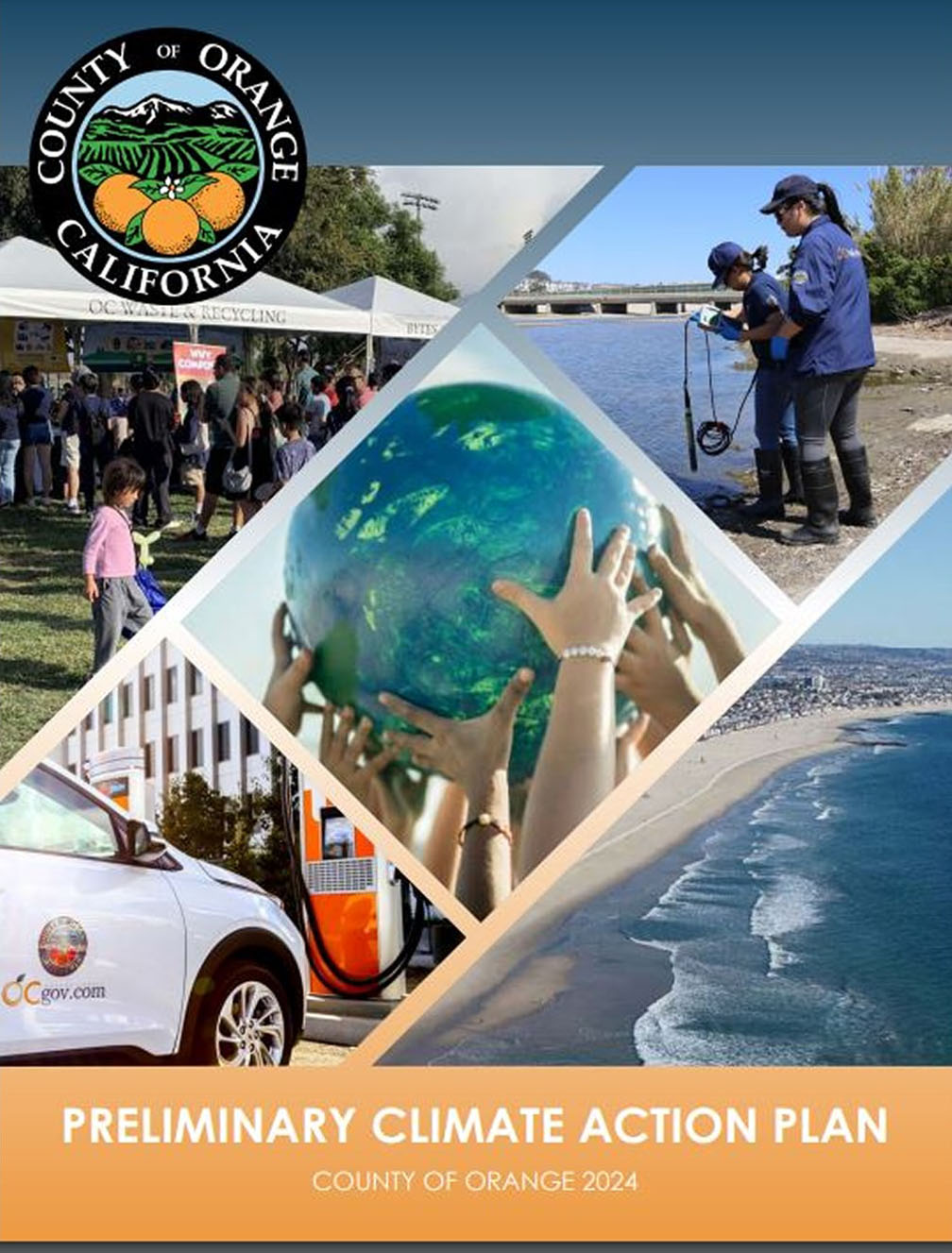
Building a Greener Future
In 2024, OCWR took significant strides toward advancing sustainability and addressing climate challenges on behalf of Orange County. As part of its first Climate Action Legislative Advocacy trip to Sacramento, OCWR supported the Climate Bond initiative, which successfully advanced to the November ballot and was ultimately approved by voters.As part of the County's first step in preparing its own Climate Action Plan, OCWR developed its first ever countywide greenhouse gas baseline inventory, providing a critical foundation for climate planning. Through public forums, OCWR engaged communities to shape the Climate Action Plan (CAP), finalized six key sectors, and released the draft CAP for public review and feedback. The CAP was presented in preliminary form to the Board of Supervisors in September.
OCWR continues to pursue any and all funding sources available for climate-related programs and innovations, including Proposition 4 funds, inflation reduction act tax credits, energy efficiency programs, and grant opportunities. The County is proud to have participated on the Steering Committee for the Climate Pollution Reduction Grant - a regional effort that secured the largest grant in EPA history - $500M for the Air Quality Management District's (AQMD) four-county jurisdiction. These funds are critical to addressing climate impacts and allowing the region to advance clean innovations.
Raisingthe Bar
Advancing Safety Through the Voluntary Protection Program (VPP)
OCWR is proud to continue its journey toward achieving VPP recognition, a safety and health management initiative that fosters proactive workplace safety measures and strengthens organizational resilience. VPP is a nationally recognized program that empowers employees and engages management to reduce workplace injuries and illnesses. VPP sites experience up to 70% fewer lost workday injuries compared to similar facilities, fostering a culture of safety, reliability, and enhanced morale. Since 2019, OCWR has made significant progress, including submitting a mentorship application in July 2024 and initiating the mentorship program towards final certification. With plans to submit the formal VPP application in 2025, OCWR remains committed to leveraging leading safety indicators to drive continuous improvement, enhance relationships with OSHA, and unite our organization around a shared goal of excellence in safety, going beyond required standards for landfill operations.
2024 Safety Achievements
- New Equipment Certification Program – ensures operators and maintenance staff receive comprehensive training to meet and exceed industry standards
- Ongoing employee-driven safety task forces dedicated to continuous improvement and professional growth 3,904 total employee training hours
- Launched new Employee Development Program
Strategic LeadershipDrives Organizational Shifts
In 2024, OCWR finalized an internal reorganization to optimize leadership, employee development and standardization programs in support of new and ongoing initiatives. Key changes included Deputy Director leadership spearheading landfill, organics operations, safety, and enhanced standards for the department. In addition, OCWR added 39 new positions across all operations, and implemented new training and certification programs in support of continued growth.
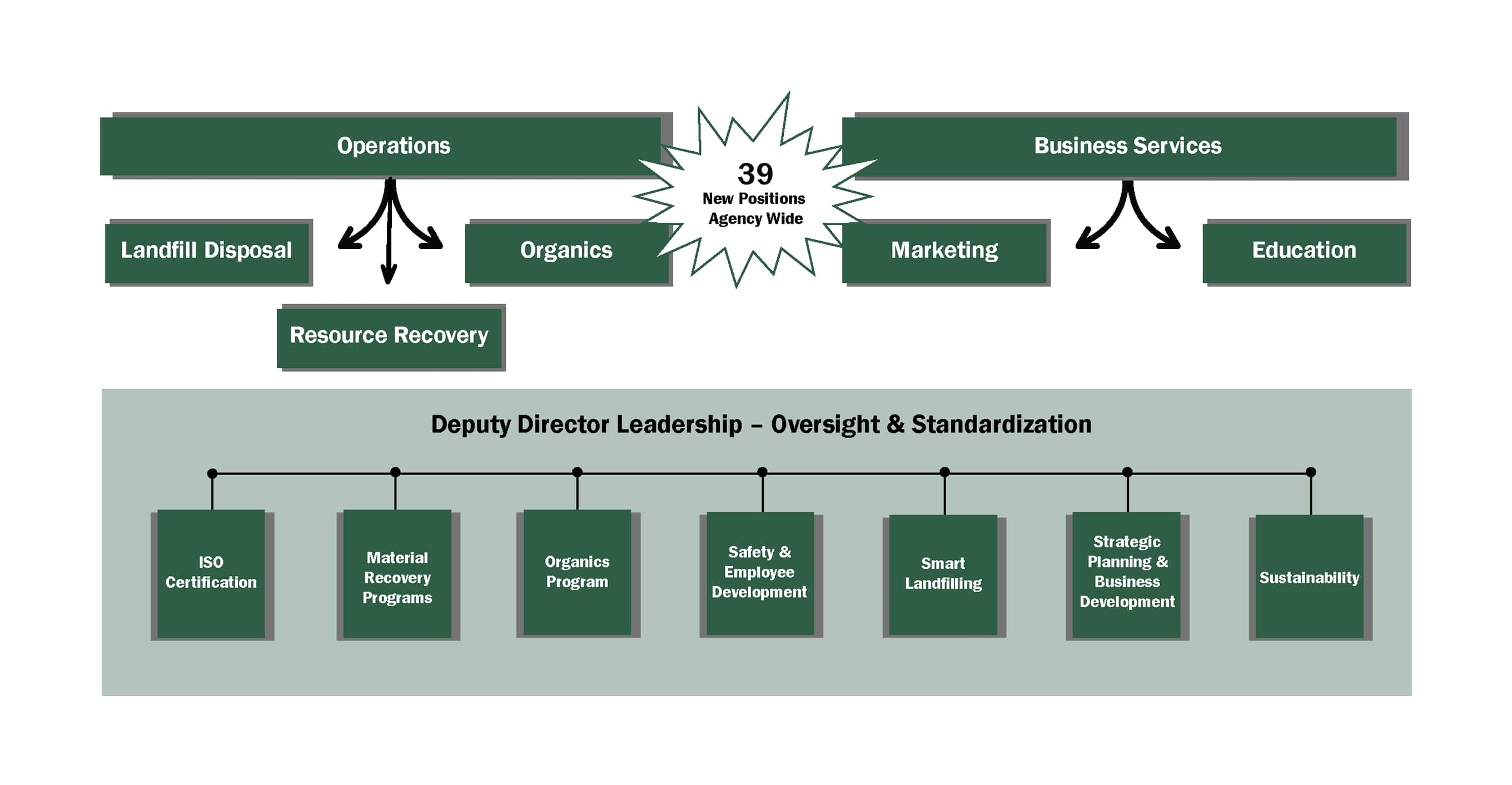
MarketDevelopment
OCWR exceeded the 2024 state mandated procurement requirements for recycled organics waste products, such as compost and mulch, by providing these nutrient-rich byproducts free to our communities. Residents and businesses in these areas now have access to organics recycling services, ensuring food and green waste is recycled rather than buried. OCWR’s organics program has not only established critical infrastructure but also achieved the following:
Collaboration

OCWR continued ongoing working groups with city and jurisdictional partners to foster collaboration on 2024 efforts towards procurement targets, to support CalRecycle’s capacity planning for organics and edible food recovery, and laying the groundwork for multifamily compliance opportunities. OCWR is working with Sustain SoCal to host working roundtables focused on multifamily compliance best practices and to bring key players and innovators together for sustainable compliance solutions.











































